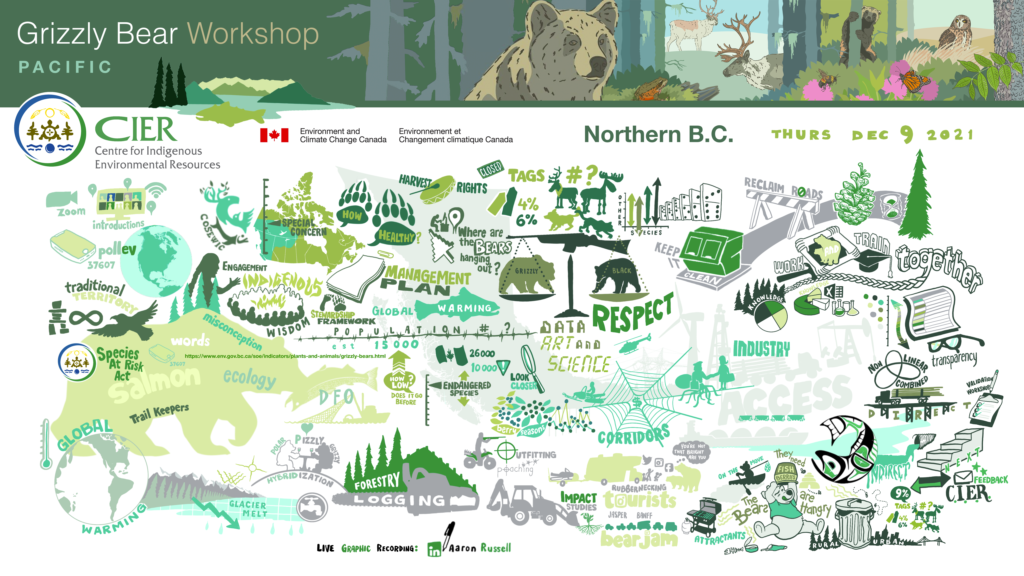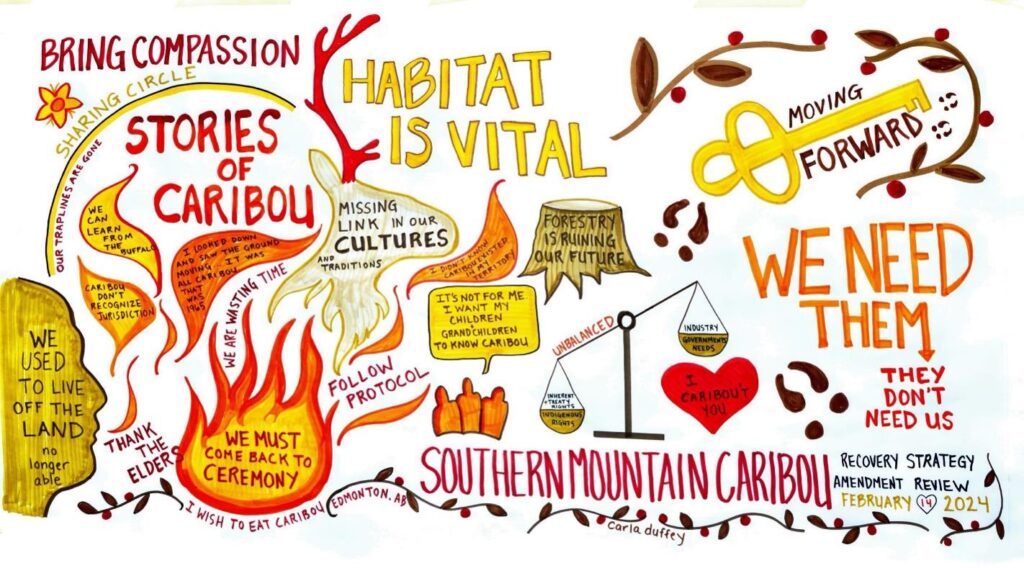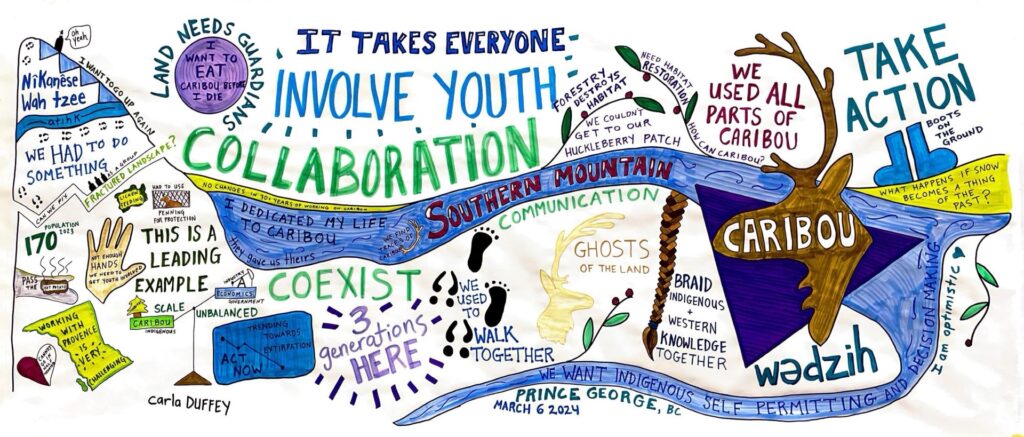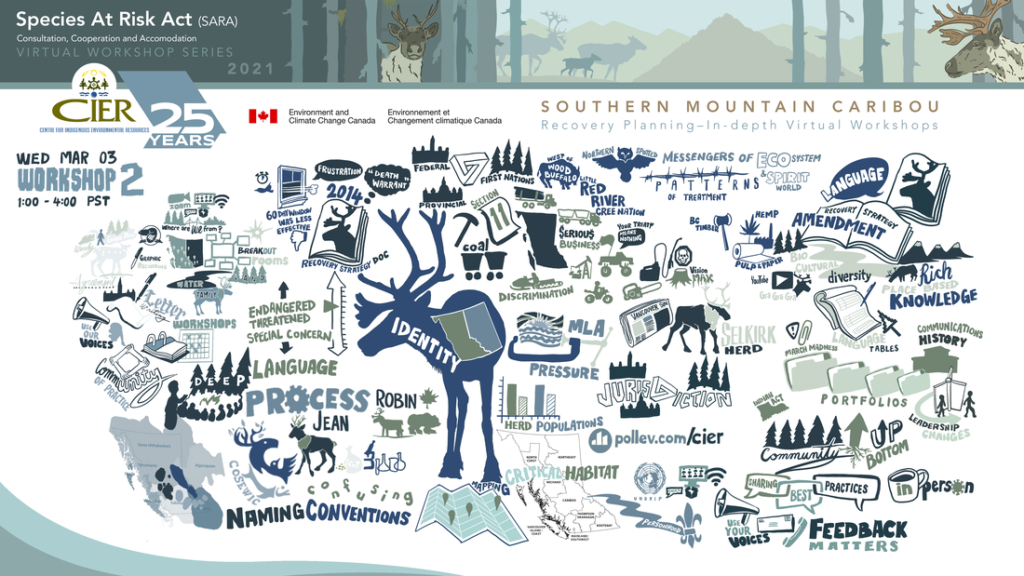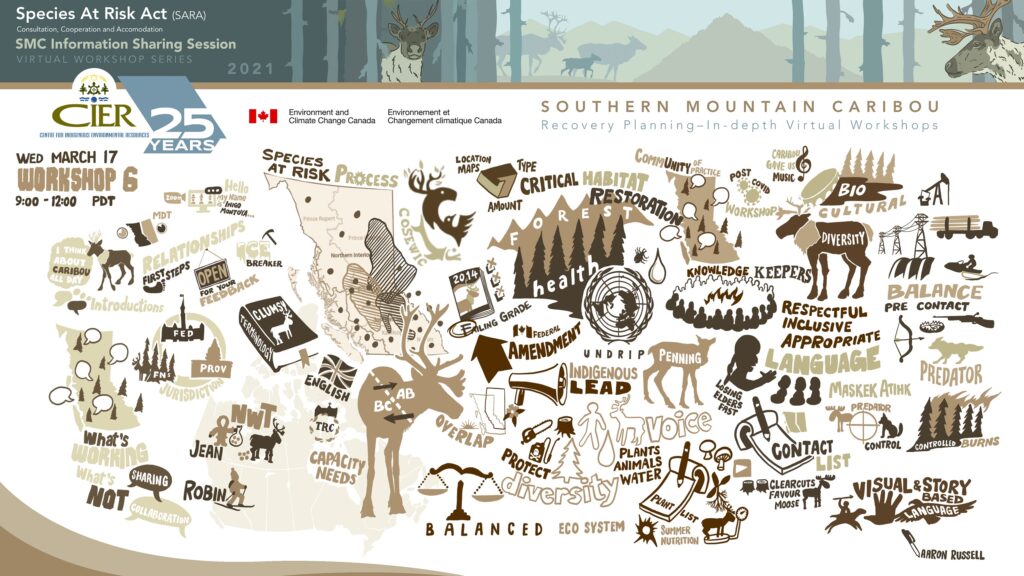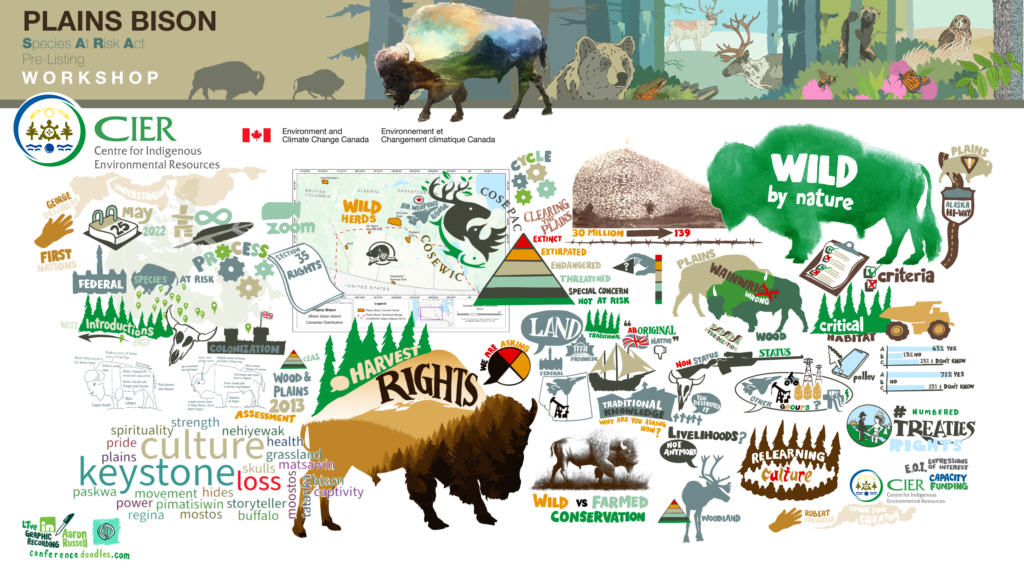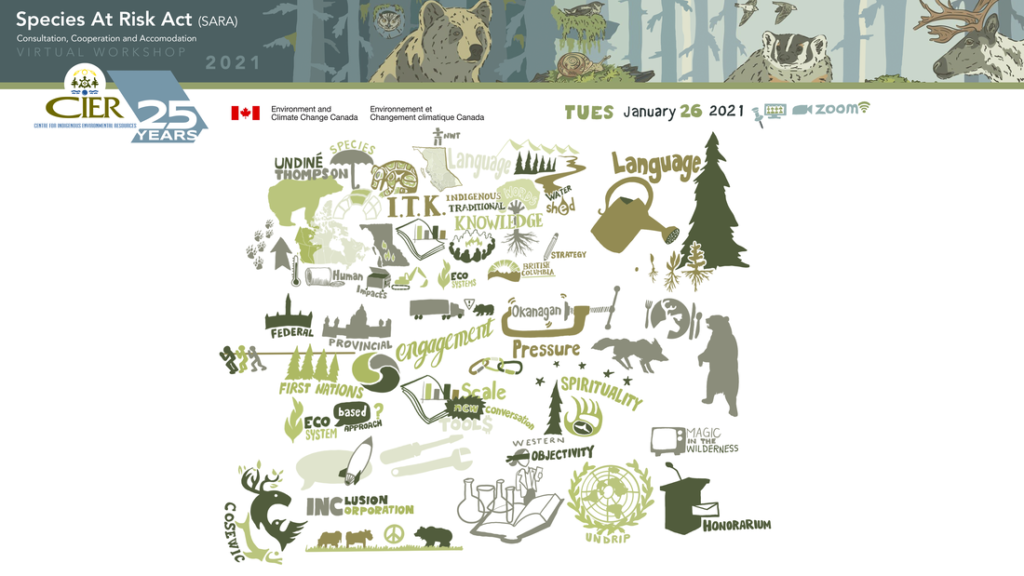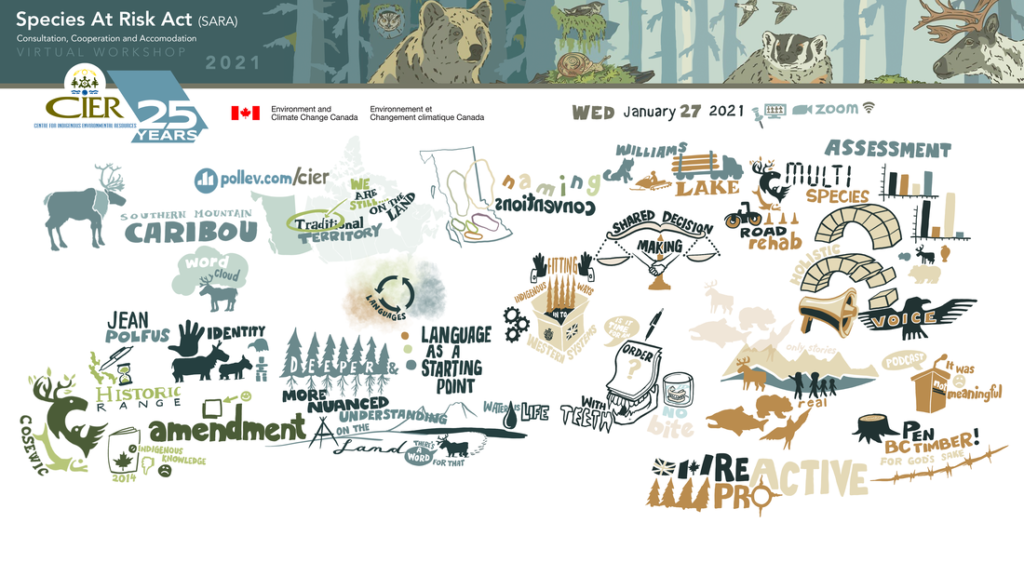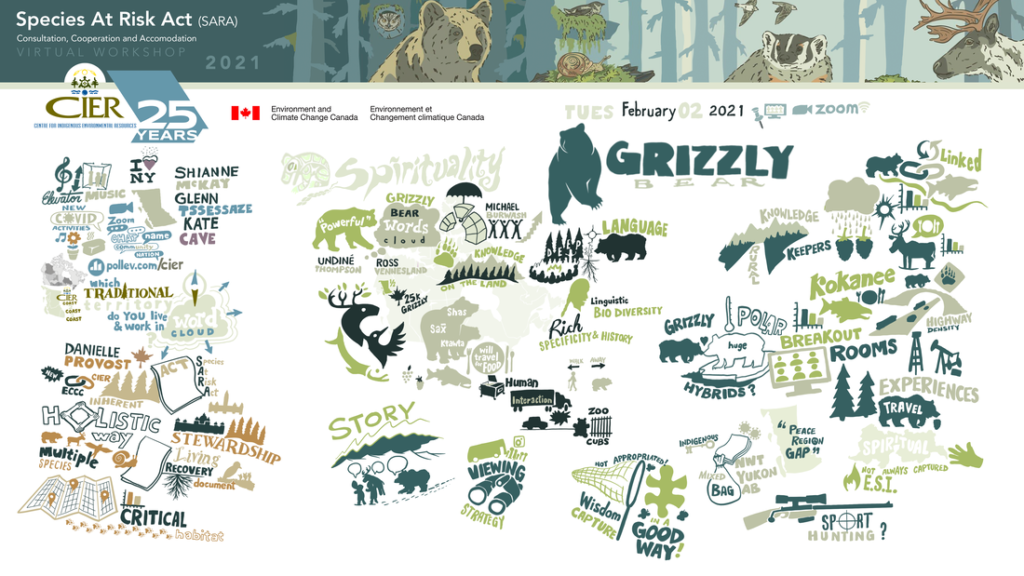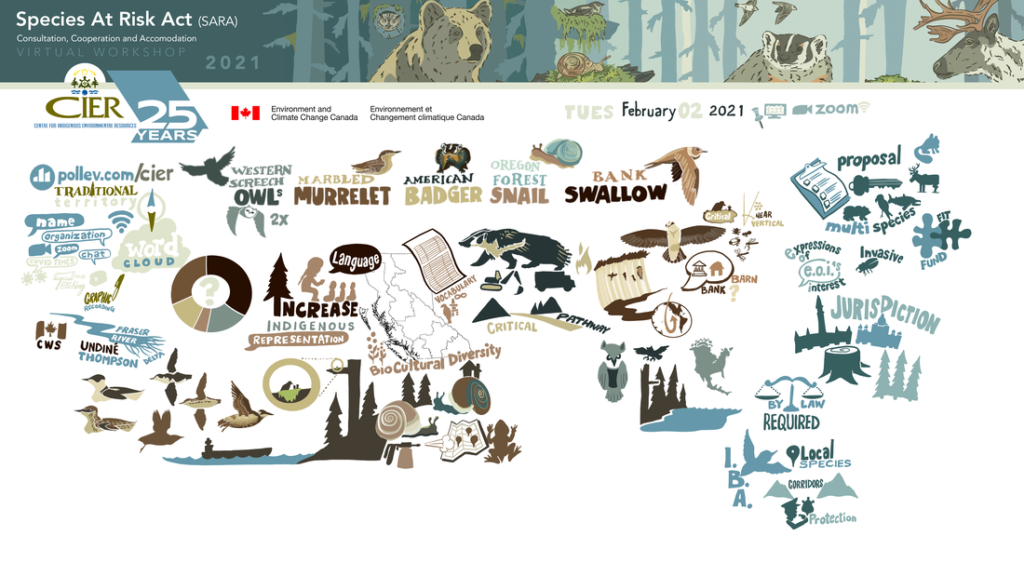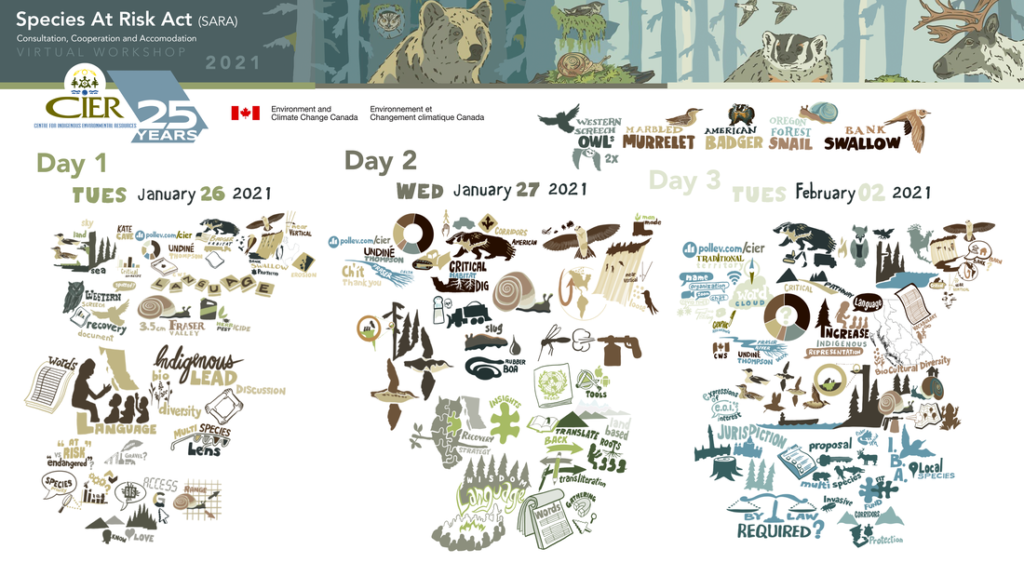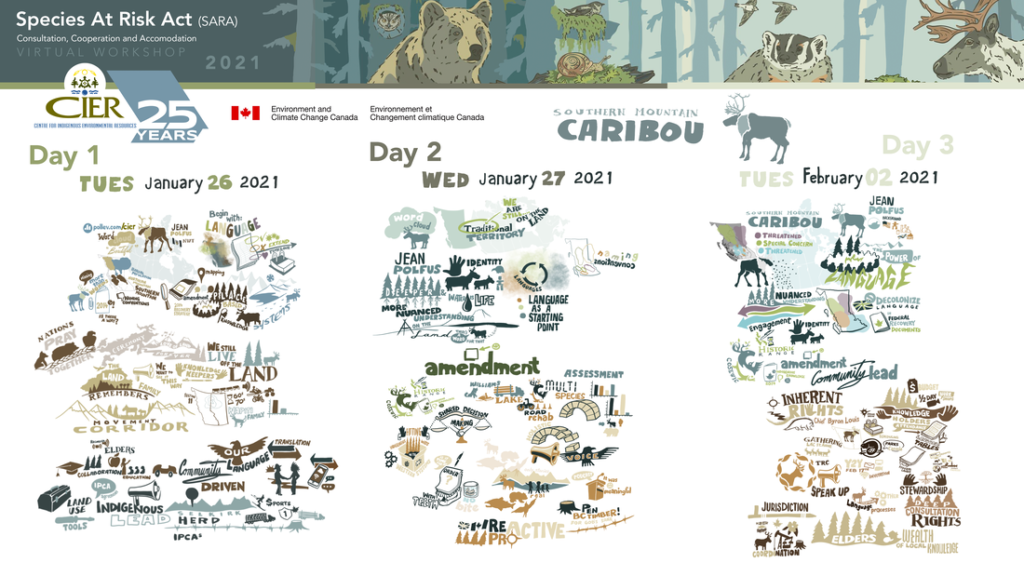Species at Risk Act (SARA) Consultation, Cooperation and Accommodation Project
Project Overview
This multi-year project will facilitate Indigenous communities’ and organizations’ participation in Environment and Climate Change Canada’s (ECCC) listing and recovery planning processes for terrestrial species as part of implementing the federal Species at Risk Act. CIER’s role is to support a range of activities between Indigenous communities and organizations and ECCC on developing recovery documents, sharing knowledge and language, addressing threats to terrestrial species at risk survival and recovery, and land use planning for species at risk on reserve lands and within traditional territories.
2020-2021 Pilot project: Prior to the start of the multi-year project, the Centre for Indigenous Environmental Resources (CIER) partnered with Environment and Climate Change Canada (ECCC) to undertake a pilot project in British Columbia. This project facilitated Indigenous communities’ and organizations’ participation in federal recovery planning for seven terrestrial Species at Risk: Grizzly Bear, Southern Mountain Caribou, Bank Swallow, Western Screech-Owl, Oregon Forestsnail, American Badger, and Marbled Murrelet. The multi-year project is a continuation of this work.
Species at Risk List
ECCC is continuously listing and reassessing the status of species under the Species at Risk Act and developing recovery documents for those that are listed as special concern, threatened or endangered. The focus of the SARA Consultation, Cooperation and Accommodation Project is on those species that are actively undergoing the listing process or recovery document development. The list below is subject to change over time.
Additional Species at Risk as of June 2024
Upcoming Events
Learning Circle centred around the Skeetchestn Fisher Project
Wednesday, July 9, 2024: 12:00 – 1:00 pm PT
The Centre for Indigenous Environmental Resources (CIER), with financial support from Environment and Climate Change Canada, Canadian Wildlife Service (ECCC-CWS) invite you to join our next Learning Circle. CIER’s Learning Circles are an opportunity for Indigenous Nations/organizations and their close partners to share learnings from projects related to species at risk.
Our July Learning Circle will be centered around the Skeetchestn Fisher Project. It is a project focused on the management and conservation of the fisher within Skeetchestn Territory and the implementation of a management plan for the Skeetchestn Fisher Recovery Area (SFRA) and the verification of its boundaries. The results also allow an assessment of the monitoring protocol for its utility to evaluate the effectiveness of the SFRA in future.
There are a lot of potential lessons we can learn from this project from the combination of track surveys, habitat modelling, identifying habitat recovery opportunities and surveying of other culturally-significant co-occurring species.
We are excited to announce a presentation from Shaun Freeman, Senior Wildlife & Habitat Biologist at Skeetchestn Natural Resources Corporation, followed by a question-and-answer period. Shaun has more than 25 years of experience with wildlife and habitat throughout British Columbia.
You can register by clicking here for the Zoom link. This session is open to anyone in your community or organization interested in attending, so please feel free to share this invitation.
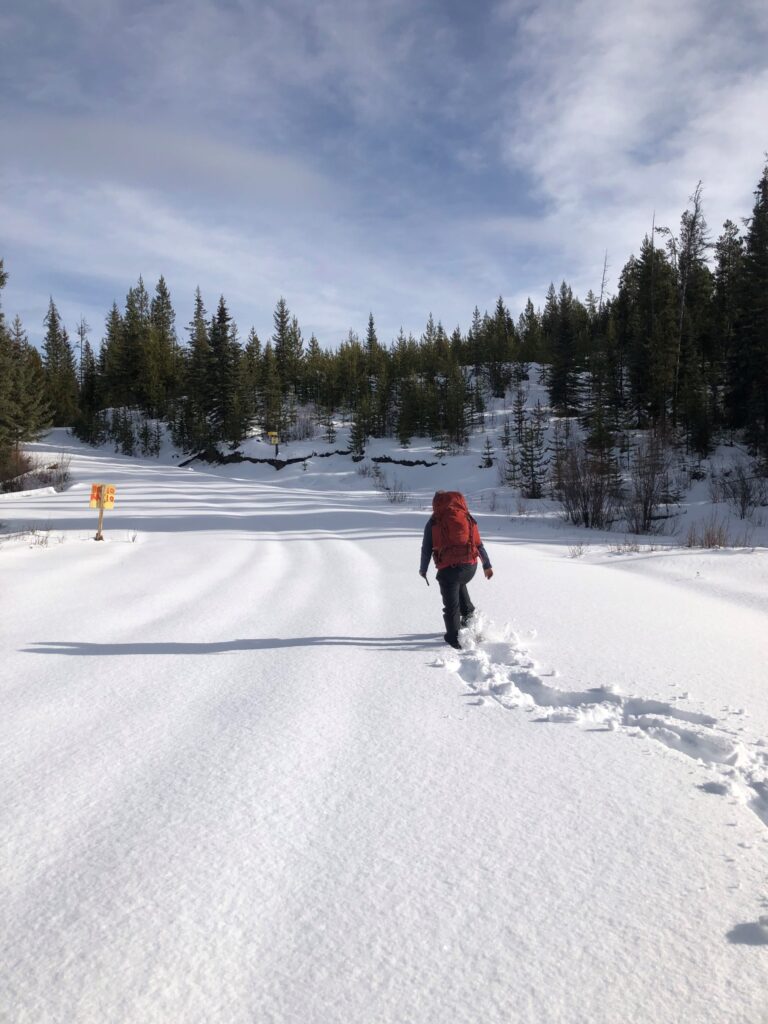
Mission Monarch Expert Training Program AND Butterfly and Habitat Surveys Overview
April 3, 2024: 1:00 – 2:00pm EST
View the presentation here:
Mission Monarch – Expert Introduction to the Monitoring Protocol (2024) / Mission monarque – Expert Introduction
Canada Wildlife Services (CWS) in cooperation with CIER is creating a Mission Monarch Expert Training Program AND Butterfly and Habitat Surveys Overview. It will provide training for interested Indigenous communities in Monarch monitoring and surveys in their territories. Training is free, and will be provided through Mission Monarch Expert, in Montreal. Following the training, ECCC will provide funding for communities for the monitoring who will complete surveys throughout the summer. The application form needs to be submitted first to receive funding.
If you missed the May 15th Training session, you can watch the videos here: Intro | Activity 1 | Activity 2 | Activity 3
Workshop Registration / Monarch and Habitat Monitoring Application / Application de surveillance du monarque et de son habitat
On this webpage you will find the materials shared at the sessions included in this project (e.g., SARA overview sessions, species specific workshops, training sessions, information sharing sessions, funding application forms). You will also find helpful species at risk related tools and resources. Click on the topic headings to see a drop-down list of the associated resources.
Contact
Kat Hewitt, Project Manager, CIER ([email protected])
Kate Cave, Senior Project Manager, CIER ([email protected])
Jean Polfus, Southern Mountain Caribou Project Lead, ([email protected])
Undiné Thompson, Senior Consultation Biologist, ECCC-CWS for questions related to any other species ([email protected])
